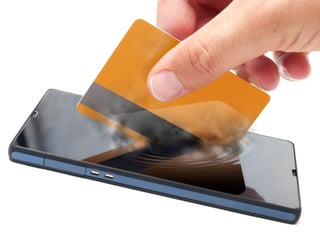 Back in the old days, retailers used a cash register to ring up sales. You could still do that, but why? Today’s technology advancements have changed the checkout counter, in a big way. And the latest POS technology can do a lot more for your business than simply house the day’s ration of cash.
Back in the old days, retailers used a cash register to ring up sales. You could still do that, but why? Today’s technology advancements have changed the checkout counter, in a big way. And the latest POS technology can do a lot more for your business than simply house the day’s ration of cash.
Computerized systems enable you to:
- Track and analyze sales to improve future buying decisions
- Manage inventory more effectively, automatically adjusting remaining inventory levels as each sale is made
- Manage your cash flow more efficiently
- Ensure accurate pricing
- Boost customer service
- Save time
- Give your marketing a lift
- Maintain a complete audit trail
No shortage of options
There are dozens of vendors in the POS technology marketplace. Though similar in terms of their basic purpose, different types of POS technology provide different capabilities and options. Which specific POS technology is best for your store depends on which of these features and benefits will be most useful for you. Here are some things you will want to at least consider:
1. Sales tracking features – by category, by specific item, by salesperson, by day, month, etc. If you hold open invoices for customers or allow installment payments, you’ll want a system that accommodates this.
2. Detailed, customized reporting for ongoing analysis, accounting.
3. The ability to create sales tags and invoices.
4. Mobile POS systems that integrate with smartphones and tablets. This will enhance your marketing as well as your customers’ shopping experience. You can accept mobile payments, link to your e-commerce site, etc.
5. Budget-friendliness. Affordability matters, but be sure to pencil out long-term return on your investment rather than comparing only up-front costs. Ask about ongoing fees.
6. Optional integration with checkout counter tools such as bar code scanners, credit card readers, receipt printers, etc.
7. Ease of integration with other business management technology for accounting and/or inventory management.
8. Many point-of-sale software products are designed to fit a wide array of businesses. They offer plug-and-play convenience but may not offer all the elements you need. Look for something you can customize yourself or which the vendor can customize for you.
9. Or look for a product specific to your industry, such as ShopKeep for apparel stores or TouchBistro for restaurants. These specialized options will require less tailoring to fit your business needs.
In a nutshell, the right POS technology enables you to work smarter in every aspect of your retail business, both behind the scenes and at the point of purchase. Whichever type you choose, be sure you’ll receive adequate training on the system and have ongoing, easy-to-access 24/7 tech support.
